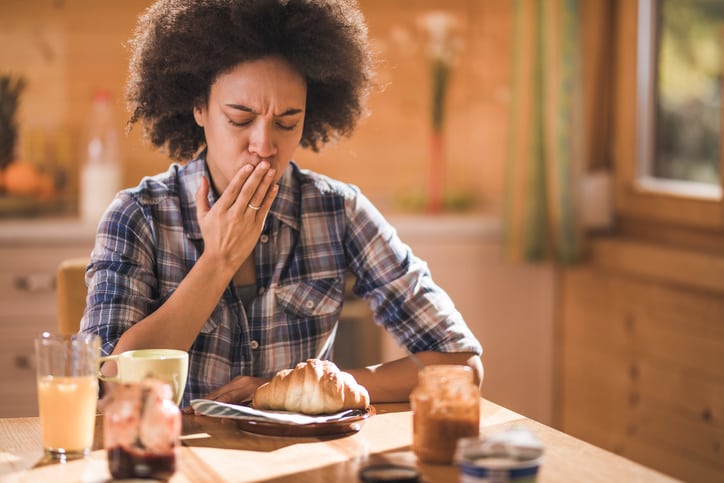One of the most frustrating feelings out there has to be getting hiccups after a big meal. One minute you’re breathing normally, and the next? It feels like you can’t take a breath, or say a sentence, without letting out a hiccup. A few of them are kind of cute and amusing, but if they go on too long? It’s another level of annoying. In order to prevent them, you need to know how they started in the first place.
So, here’s the deal with hiccups: they are involuntary contractions, or spasms, of the diaphragm. Your diaphragm is a large muscle at the base of your lungs that contracts when you breathe in, becoming flatter. When this happens, the lungs expand and air gets sucked in. According to LiveStrong, a hiccup’s sound is “produced by closing of the vocal cords, which occurs almost immediately after the diaphragm starts to contract.”
There are several reasons you might get hiccups, but eating is a big one.

One major reason it happens after a meal is if you eat too much at once. When you overeat, your stomach expands and becomes distended, which means it can push onto the diaphragm, causing contractions (aka hiccups).
These spasms can also be caused by eating really fast. If you’re eating too quickly, you’re swallowing too much air, which is again causing your stomach to become distended.
Sometimes, it’s not about the way you’re eating at all — it’s about what you’re eating. Foods that are too hot, too cold, or too spicy are more likely to cause hiccups. That’s because these foods can stimulate nerves in the esophagus, which can lead to reflex spasms of the diaphragm. Carbonated beverages and alcohol cause air bubbles, which can distend the stomach and trigger hiccups. Food that causes gas can also lead to hiccups.
So if you want to avoid hiccups after eating, try eating slowly, not overeating, and avoiding certain foods. And if you want to try to stop these spasms altogether, Medical Daily recommends drinking water while plugging your ears, or pulling your tongue out of your mouth.

